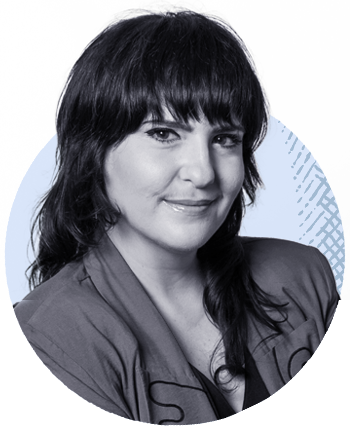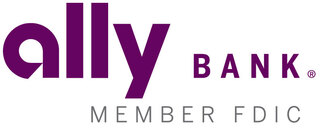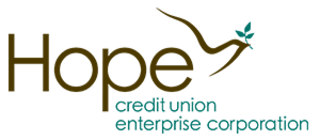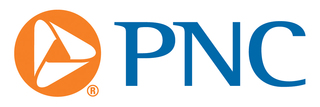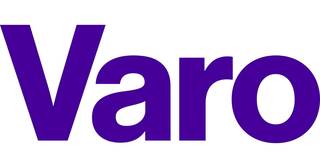Best Checking Accounts of 2024
*Rates and APYs are subject to change. All information provided here is accurate as of April 26, 2024.
A checking account should offer convenient options for depositing and withdrawing funds, accompanied by a debit card that’s accepted virtually everywhere. The best checking accounts are also free and provide additional benefits such as earning interest on your balance or receiving cash back on purchases.
We evaluated dozens of brick-and-mortar banks, online banks, credit unions and other financial institutions for our list of the best checking accounts available today. Below, you’ll find our top picks, plus details on how to choose the right checking account for you. Read on to learn more.
Money’s Main Takeaways
- The best checking account for earning interest is from HOPE Credit Union, with an APY of 3.01%
- Upgrade offers up to 2% on debit card purchases (up to $500 per year)
- Ally Bank covers overdrafts of up to $250 with no fees
- You can get all ATM fees (even international) reimbursed with Betterment
- PNC Bank offers a sign-up bonus of up to $400
Why Trust Us?
Our editors and writers independently review dozens of checking accounts from a variety of financial institutions, ensuring our content is precise and guided by editorial accuracy. Read our full methodology to learn more.
- Over 40 checking accounts evaluated
- Based on 10 key data points, including monthly service fees, perks (e.g., cash back and interest) and customer satisfaction
- Thousands of hours of cumulative research involved
Our Top Picks for Best Checking Accounts of 2024
The companies listed below are organized alphabetically.
- Ally Bank - Best Checking Account for Overdraft Protection
- Betterment - Best Checking Account for ATM Fee Reimbursement
- Chase - Best Checking Account for College Students
- HOPE Credit Union - Best High Interest Checking Account
- PNC Bank - Best Checking Account for Personal Finance Management
- SoFi - Best Hybrid Checking and Savings Account
- Upgrade - Best Checking Account for Cash Back
- Varo Bank - Best Checking Account for Building Credit
Best Checking Account Reviews
- No fees for overdrafts, low balance or monthly maintenance
- Free tools for tracking or limiting spending
- Earn up to 0.25% APY on your checking account balance
- Get payroll direct deposits up to two days early
- No cash deposits
- Highest APY requires $15,000 average daily balance
- Out-of-network ATM fee reimbursement limited to $10 per statement cycle
- Monthly Fee
- $0
- Balance to Open
- $0
- ATM Network
- 43,000
- APY
- 0.10% - 0.25%
Why we chose it: Ally Bank’s online Checking account offers overdraft protection that goes beyond the no-fee approach, allowing up to $250 in overdrafts at no charge.
Ally Bank does not charge overdraft fees and provides coverage up to $250 through its CoverDraft program. Customers are automatically eligible for at least $100 in CoverDraft protection 30 days after depositing at least $100 into their Interest Checking account.
Coverage includes debit card transactions (cash back transactions, too), automatic payments, transfers to other financial institutions and bill payments by personal check. However, Zelle transfers, ATM withdrawals and transfers to Ally Bank investment accounts are not covered.
You can also choose to link your Ally Bank Savings or Money Market accounts as a backup. Overdraft amounts will be transferred from these accounts. Note that these transactions do count as one of the six limited transactions allowed with Savings and Money Market accounts.
If you opt out of CoverDraft, you won’t be charged for overdrafts. Ally Bank will decline transactions that exceed the funds in your account. Additionally, Ally Bank’s Spending Account is an interest-bearing account.
- Up to 5% cash back at eligible retailers
- Unlimited reimbursement of fees from ATMs and foreign transactions
- No monthly fees or overdraft fees
- Does not earn interest
- Cannot deposit cash
- Monthly Fee
- $0
- Balance to Open
- $0
- ATM Network
- All ATM fees are reimbursed
- APY
- N/A
Why we chose it: Betterment’s unlimited reimbursement of all ATM fees, both domestic and international, makes it our pick for best bank for ATM fee reimbursements.
Betterment Checking is a zero fee, mobile-first checking account offered through nbkc bank. Its biggest standout: Betterment repays all fees from all ATM companies. The bank also reimburses all foreign transaction fees. Additionally, Betterment Checking is a rewards account: You can get up to 5% cash back on debit card purchases online and in person from select retailers, including Costco, Sam’s Club and adidas.
No initial deposit is required at account opening. Plus, unlike similar mobile-focused checking accounts, Betterment also offers joint accounts. Betterment also has an additional security perk — you can change your card’s PIN or even lock your card from your mobile phone.
Betterment has an additional security perk — you can change your card’s PIN or even lock your card from your mobile phone.
- $100 sign-on bonus with qualifying transactions
- No fees on overdrafts up to $50
- No monthly fees for up to five years while in college
- Zelle integration for quick peer-to-peer payments
- No interest or cashback rewards
- Enrollment eligibility ends at 24 years old
- 17-year-olds cannot open an account online
- $3 fee for non-Chase ATM use
- Monthly Fee
- $6, waived for up to five years while in college
- Balance to Open
- $0
- ATM Network
- 16,000 ATMs across the U.S.
- APY
- N/A
Why we chose it: Chase’s $100 sign-on bonus, no fees until graduation and free educational personal finance content make it our best account for college students.
College students aged 17 to 24 can open a Chase Bank College Checking account and receive a $100 bonus when they make 10 qualifying transactions — which include debit card purchases, Zelle transactions, mobile check deposits and online bill payments — within 60 days of opening.
A valid student ID is required to open the account. Chase charges no maintenance fees for five years or until after the student graduates, whichever comes sooner. A $6 maintenance fee applies after, which can be waived with qualifying direct deposits (payroll or government benefits) or by maintaining a minimum $5,000 average daily balance.
Additionally, Chase College Checking customers aren’t charged fees for overdrafts of up to $50. For overdrafts of more than $50, there’s no fee so long as the account holder brings the balances to less than -$50 by the next business day.
Even if you don’t have your card in hand when visiting one of the 16,000 Chase ATMs, you can still use Chase’s smartphone app to access your funds via their cardless ATM access feature.
- High APY at 3.01%
- Up to $20 in ATM fees reimbursed each cycle
- No monthly maintenance fees
- No minimum balance requirement
- $10 membership fee to join credit union
- $25 overdraft fee
- 30 days to resolve overdrafts or account will be closed
- If minimum requirements aren't met, APY is only 0.10%
- Monthly Fee
- $0
- Balance to Open
- $0
- ATM Network
- More than 5,000 (PULSE, Credit Union 24 or MoneyPass) and up to $20 in out-of-network fees reimbursed per statement cycle
- APY
- Up to 3.01%
Why we chose it: HOPE Rewards Checking account holders only need to meet a few simple requirements to get the credit union’s highest APY, which is the top APY rate among the companies we evaluated.
HOPE Credit Union Rewards Checking account holders get a minimum APY of 0.10%, but you can get up to 3.01% by meeting the following requirements each month:
- A minimum of 12 debit card transactions
- Use the online banking (HOPENet Online) or the bank’s mobile app (HOPE Mobile5) at least once
- Receive e-statements
- Maximum balance of $10,000
HOPE Rewards Checking charges no monthly fees and requires no minimum balance. The credit union also reimburses up to $20 in ATM fees per statement cycle — so long as you meet the account qualifications mentioned above.
You must be a member of the credit union to use its banking products, including Rewards Checking. To become a lifetime member, you can make a one-time $10 donation to the Hope Enterprise Corporation, a nonprofit focused on equal access to economic opportunity.
- Combine checking with two interest-bearing accounts
- Monitor spending with money management tools
- Set a balance threshold with Low Cash Mode to help you avoid overdrafts
- Up to $400 sign-up bonus with qualifying direct deposits
- Overdraft fee is high at $36 per item pay day
- Savings APYs are low-yield (0.01% to 0.03%)
- Only reimburses up to $5 in ATM fees per statement period
- Monthly Fee
- $7, waived with a $500 in monthly direct deposits or combined balance between accounts
- Balance to Open
- $0 if opened online
- ATM Network
- Approximately 60,000
- APY
- Spend: 0%, Reserve: .01%, Growth .02% to .03%
Why we chose it: PNC’s mobile app includes comprehensive money management features, such as push alerts for low balances and upcoming payment reminders.
The PNC Virtual Wallet combines free checking with interest-bearing accounts, plus free personal finance management tools. Available accounts include:
- Spend - Typical checking account, does not accrue interest
- Reserve - Interest-bearing checking account
- Growth - Interest-bearing savings account
Personal finance management tools include Low Cash Mode alerts by text, email or mobile push notifications. There’s also a budget-setting tool and upcoming bill pay reminders.
Additionally, PNC allows you to cancel transactions and checks via its mobile app. If you overdraft your account, you have 24 hours to correct your balance before a fee is charged. Fees for overdrafts of more than $5 are $36 per item per day. However, there are no fees for returned items for non-sufficient funds (NSF) that aren’t processed because the total exceeds your available balance.
- Checking earns 0.5% interest, savings account APY up to 3.60%
- No overdraft fees, plus overdraft protection up to $50
- Up to $300 sign-up reward with qualifying direct deposits
- No out-of-network ATM fee reimbursement
- Must have $1,000 in monthly direct deposits to qualify for overdraft protection
- Monthly Fee
- $0
- Balance to Open
- $0
- ATM Network
- 55,000
- APY
- Earn up to 3.60% Annual Percentage Yield (APY) on savings (including Vaults) with eligible direct deposit or $5,000+ in qualifying deposits during the 31-day evaluation period. Members without eligible direct deposit earn 1.00% APY on savings and 0.50% APY on checking.
Why we chose it: SoFi offers a fee-free, interest-bearing checking account, plus a savings account with a competitive annual percentage yield.
SoFi’s high-yield checking account comes with a savings account, and both offer competitive APYs. New customers who add direct deposit get a signup bonus of either $50 (deposits from $1,000 to 4,999.99) or $300 ($5,000 and up).
Direct deposit also qualifies you for the highest available APYs, as well as overdraft protection of up to $50 overdrawn funds. By meeting this requirement, SoFi will not charge a fee for the overdrawn amount. Funds from your next deposit are automatically applied to the negative balance.
Additionally, unlike many online banks with no physical locations, SoFi allows cash deposits at participating retailers through the Green Dot network — a mobile banking institution that specializes in prepaid debit cards. Cash deposits are possible at any of the thousands of Green Dot locations at retailers such as 7-Eleven, Walmart, Dollar General, CVS, Kroger and Walgreens.
- Up to 2% cash back on debit card purchases
- No monthly fees, no overdraft fees
- Rewards Checking with Performance Savings and a $1,000 direct deposit makes account eligible for 4.14% APY
- Not an interest-bearing account
- No physical branch locations
- No cash deposits
- Monthly Fee
- $0
- Balance to Open
- $0
- ATM Network
- Over 55,000
- APY
- 4.14%
Why we chose it: Upgrade stands out for offering up to 2% cash back on debit card purchases, including online transactions.
Many rewards checking accounts require that transactions be signature-based to qualify for cash back. However, Upgrade does not. All debit card purchases, whether online or in person, earn cash back with Upgrade’s Rewards Checking account.
Everyday expenses (e.g., drugstores, gas stations, UberEats, Starbucks) as well as cell phone bills and streaming platform payments that are paid with your debit card qualify for 2% cash back. You can earn up to $500 in a calendar year. After that, and on any other purchases that don’t fall into qualifying categories, you earn 1% cash back with no limit.
Additionally, Upgrade does not charge overdraft fees with this account. If your balance is lower than an attempted payment, Upgrade will not process the transaction, and will not charge you a fee.
- Build credit by funding a secured credit card with your Varo checking account
- No monthly or overdraft fees for checking account or secured credit card
- Get payroll direct deposit up to two days early
- Zelle integration
- Up to 6% cash back on select retailers
- $3.50 fee for out-of-network ATM use
- Checking account doesn’t earn interest
- Monthly Fee
- $0
- Balance to Open
- $0
- ATM Network
- 40,000+ AllPoint
- APY
- None
Why we chose it: Varo Bank offers a fee-free checking account plus a secured credit card that can help improve your credit score. Neither account requires a minimum opening deposit.
For people looking to improve their credit scores, pairing Varo’s checking account with its Believe secured credit card is a solid option. There’s no minimum deposit required for either, so you can add funds as you see fit.
Additionally, you get up to 6% cash back on purchases made with your Varo debit card and your Believe card, both issued by Visa, at a rotating selection of online and in-person retailers. (Past partners include McDonald’s, PetSmart, Circle K and Forever 21.)
In addition to the AllPoint ATM network, Varo Bank is partnered with the Green Dot network, so you can withdraw funds at any location, as well as deposit cash. You can also use your debit card for cash back at stores that offer this service. Note, however, that Varo charges a $3.50 fee for out-of-network ATM use. This fee is in addition to any surcharge from the ATM owner.
Varo also offers a savings account with no monthly fees and a competitive annual percentage yield.
Best Checking Accounts Guide
Whether you’re looking to find a better checking account or you're about to open one for the first time, here are some things to consider when making your choice.
Checking account pros and cons
A checking account is a transactional account, which means it’s meant for depositing and withdrawing funds. Depending on your checking account, the following pros and cons may apply.
- Deposit and store cash, checks, funds transferred electronically (e.g., ACH deposits, PayPal deposits, transfers from other accounts)
- Access funds via debit card (transactions at retailers, ATM withdrawal), checks, in-branch withdrawals, transfers to other accounts
- Schedule automatic payments online, e.g., monthly utilities or streaming services
- Use your bank account for peer-to-peer payment platforms, e.g., PayPal, Zelle
- Your bank statement can be used as proof of income when shopping for loans
- Funds are insured either by FDIC or NCUA up to $250,000 per insurer per account
- Some checking accounts require a minimum deposit to open
- Some banks charge monthly account fees
- Some accounts charge fees for using out-of-network ATMs
- Many financial institutions set limits on daily withdrawal amounts
- Accounts with unresolved overdrafts may be sent to collections, which can hurt your credit score
- APYs on checking accounts (if offered) are significantly lower than that of other savings products
What are checking accounts used for?
A checking account is used for depositing and withdrawing funds. Accounts include a debit card for in-person and online payments, such as at retailers or to pay bills through a utility company website. You can also use your debit card at ATMs to withdraw funds and check your balance.
How do checking accounts work?
Virtually all financial institutions have an online banking site and a mobile app, which you can use to schedule transfers from other accounts, receive ACH deposits (e.g. payroll, government benefits) and deposit paper checks. Most traditional banks also offer in-person service at physical branches.
Checking account vs. savings account
Checking accounts and savings accounts are similar in how you fund the accounts — mobile deposit, transfer from a linked account or direct deposits. Beyond this, though, there are a lot of differences between checking and savings accounts.
Check out our guides to the best savings accounts and high-yield savings accounts for more information. For more savings options, take a look at the best money market accounts and best certificate of deposit rates.
Business vs. personal checking account
A personal checking account is meant for individuals with everyday deposit and withdrawal needs. Business checking accounts offer additional features tailored specifically to business owners and, in some cases, their employees.
Personal Checking Account | Business Checking Account |
|---|---|
Usually no minimum balance or deposit requirements | Minimum balance or deposit requirements always apply |
May be co-owned by another person, allowing for separate debit cards for the same account | Allows for employee debit cards, with the ability to set predetermined spending and withdrawal limits |
Some might not charge any fees or will offer ways to waive existing fees | Always charges fees, which are much harder to waive |
Rarely offers additional services | Additional services such as bookkeeping and payroll may be offered |
Unlimited free transactions | Limited number of transactions before fees apply |
Find out our top picks for business banking in our guide to the best business checking accounts.
Do checking accounts earn interest?
Some checking accounts earn interest, but annual percentage yield (APY) rates are considerably lower than that of other interest-bearing bank accounts, such as high-yield savings accounts. However, there are some exceptions, like HOPE Credit Union, which is our pick for Best Checking Account for High Yields.
Checking account fees
Account fees are common across many banks and you'll rarely find a bank that doesn't charge for at least some of its account services. However, increased competition between banks has led many of them to drastically lower or eliminate some of these fees.
Here are some of the most common fees associated with checking accounts:
- Monthly fees: Checking accounts generally charge monthly fees, sometimes called maintenance fees, typically in the $6 to $12 range. Often, banks will waive these fees if you meet certain requirements, such as maintaining a minimum balance of $500 or more.
- Overdraft or insufficient funds fees: Fees for insufficient funds (NSF) vary from $15 to upwards of $35 per item. However, some banks don’t charge an overdraft fee if the negative balance is resolved within a specific period of time.
- ATM fees: If you use an ATM that’s outside your bank’s network, you will be charged a fee by the ATM company and, in some cases, by your bank, too. Costs can range from $1.50 to over $10. Many banks reimburse some or all fees through a monthly credit.
- Paper statement: Banking statements that you can print or save as a file are available online and through mobile apps. But if you want a paper statement mailed to you, your bank may charge a fee for this service.
What do you need to open a checking account?
Opening a checking account at a financial institution is a fairly straightforward process, whether online or at a brick-and-mortar branch. You can always expect to fill out a form that requires you to provide the following documents and information:
- Social Security or Individual Taxpayer Identification Number
- Government-issued ID (driver’s license, passport, etc.)
- Date of birth
- Contact information (address, phone number, email)
Best Checking Accounts FAQs
What is overdraft protection?
Overdraft protection links your checking account balance to another source of funds, whether it's a separate account or a credit line. Its purpose is to protect your account should you make a payment that exceeds your balance.
Note that this is not the same as a bank's claim of no overdraft fees. Some banks allow customers to have a negative balance for a certain period of time before charging any fees. Others simply decline transactions that exceed your available balance.Which banks offer free checking accounts?
How do I close a checking account?
To close a checking account, you should call the customer service number for the bank, credit union or financial institution where your account is held. Some banks do allow you to close your account online, but more likely, you’ll need to speak with a representative by phone. Additionally, some banks and credit unions that require you to close your checking account in person at a branch location.
You won’t be able to close your account if you have a negative balance. Also, remember to change any direct deposits or automatic payments to another bank account.Should I have more than one checking account?
How much money can you overdraft in a checking account?
How We Chose the Best Checking Accounts
To create our list of the best checking accounts, we evaluated dozens of financial institutions, including credit unions, major banking institutions, online banks and fintech companies.
Our methodology includes the following factors:
- Member FDIC or member NCUA - We verified our selections to include only FDIC-insured or NCUA-insured checking accounts.
- Annual percentage yield (APY) - We looked for the highest available APYs among checking accounts that yield interest.
- Cash-back rewards and other bonuses - We evaluated rewards offered by banks with rewards checking.
- Monthly fees - No fees, low fees or easy-to-waive monthly fees weighed heavily in our decision-making.
- Overdraft protocol - We looked for checking accounts with no overdraft fees and helpful overdraft protection programs.
- Opening deposit - We looked for zero to low opening deposit amounts.
- ATM network and ATM fee reimbursement - Extensive fee-free ATM networks and/or multiple or unlimited ATM fee rebates received strong consideration.
- Customer support - We looked to financial institutions with easy access to customer support.
- Financial standing - We checked financial institutions to ensure each offers adequate security measures, including EMV chips on debit and credit cards, one-time passwords for online transactions, two-step verification and biometric logins.
- Security - We checked financial institutions to ensure each offers adequate security measures, including EMV chips on debit and credit cards, one-time passwords for online transactions, two-step verification and biometric logins.
Though we always try to include accurate and up-to-date information on regulatory and legal actions, we don’t claim this information is complete or fully up to date. Checking account features such as annual percentage yield rates and rewards programs are subject to change. As always, we recommend you do your own research as well.
Comparison to other banks and financial institutions
To create our guide to the Best Checking Accounts of 2024, we evaluated checking accounts from more than 40 banks, credit unions, online checking accounts and other financial institutions. Those that did not make our list of top picks include Alliant Credit Union, Amalgamated Bank, American Express, Associated Banking, Axos Bank, Bank of America, Bank5 Connect, BMO Harris, Capital One 360, Charles Schwab, Chime, CITI, Citizens Bank, Connexus Credit Union, Current, Discover Bank, Fidelity Bloom, Heritage Bank, HSBC, LendingClub, mph.bank, Navy Federal Credit Union, nbkc bank, Pentagon Federal Credit Union (PenFed), Quontic bank, Revolut, Salem Five Bank, TIAA Bank, U.S. Bank, Wells Fago, Wealthfront, Wells Fargo and Wise.
Summary of Money’s Best Checking Accounts of 2024
The companies listed below are in alphabetical order.
- Ally Bank - Best Checking Account for Overdraft Protection
- Betterment - Best Checking Account for ATM Fee Reimbursement
- Chase - Best Checking Account for College Students
- HOPE Credit Union - Best High Interest Checking Account
- PNC Bank - Best Checking Account for Personal Finance Management
- SoFi - Best Hybrid Checking and Savings Account
- Upgrade - Best Checking Account for Cash Back
- Varo Bank - Best Checking Account for Building Credit
